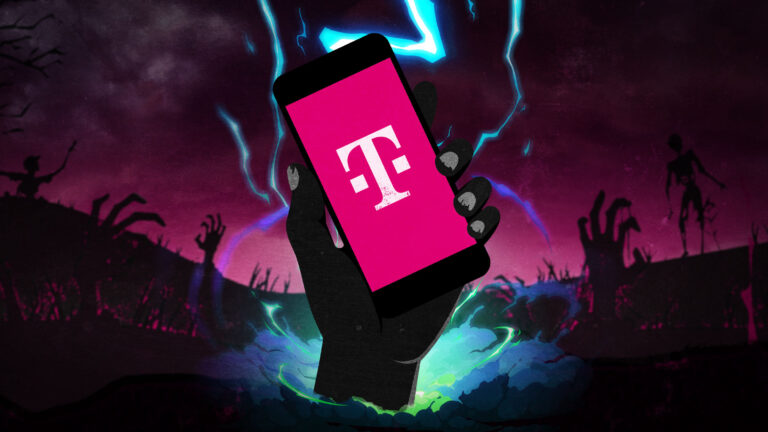Skip to content
FCC docket draws anger at ISPs and mockery of Republican's data/coffee analogy.

Credit: Getty Images | Yuichiro Chino
It's been just a week since US telecom regulators announced a formal inquiry into broadband data caps, and the docket is filling up with comments from users who say they shouldn't have to pay overage charges for using their Internet service. The docket has about 190 comments so far, nearly all from individual broadband customers.
Federal Communications Commission dockets are usually populated with filings from telecom companies, advocacy groups, and other organizations, but some attract comments from individual users of telecom services. The data cap docket probably won't break any records given that the FCC has fielded many millions of comments on net neutrality, but it currently tops the agency's list of most active proceedings based on the number of filings in the past 30 days.
"Data caps, especially by providers in markets with no competition, are nothing more than an arbitrary money grab by greedy corporations. They limit and stifle innovation, cause undue stress, and are unnecessary," wrote Lucas Landreth.
"Data caps are as outmoded as long distance telephone fees," wrote Joseph Wilkicki. "At every turn, telecommunications companies seek to extract more revenue from customers for a service that has rapidly become essential to modern life." Pointing to taxpayer subsidies provided to ISPs, Wilkicki wrote that large telecoms "have sought every opportunity to take those funds and not provide the expected broadband rollout that we paid for."
Republican’s coffee refill analogy draws mockery
Any attempt to limit or ban data caps will draw strong opposition from FCC Republicans and Internet providers. Republican FCC Commissioner Nathan Simington last week argued that regulating data caps would be akin to mandating free coffee refills:
Suppose we were a different FCC, the Federal Coffee Commission, and rather than regulating the price of coffee (which we have vowed not to do), we instead implement a regulation whereby consumers are entitled to free refills on their coffees. What effects might follow? Well, I predict three things could happen: either cafés stop serving small coffees, or cafés charge a lot more for small coffees, or cafés charge a little more for all coffees.
Simington's coffee analogy was mocked in a comment signed with the names "Jonathan Mnemonic" and James Carter. "Coffee is not, in fact, Internet service," the comment said. "Cafés are not able to abuse monopolistic practices based on infrastructural strangleholds. To briefly set aside the niceties: the analogy is absurd, and it is borderline offensive to the discerning layperson."
The comment contained a lengthy parody of Simington's coffee analogy, reading in part:
Suppose you were a different FCC, the Federal Communications Commission, and rather than regulating the price of Internet service subscriptions, you instead implement a regulation whereby consumers are entitled to use that Internet service for which they have paid. That very Internet service is priced based on the speed by which Internet data is served to them; not the cumulative amount of data. What effects might follow? Well I predict two things could happen: either BIAS [Broadband Internet Access Service] providers stop providing Internet service, or BIAS providers stop charging arbitrary data cap overages. These data cap overages have neither historically been part of the Internet service subscription, nor do BIAS providers present any infrastructural evidence to support such terms.
Economist group: Data caps are good for users
The International Center for Law & Economics today published a white paper arguing that data caps are good for users and ISPs. It argues that "usage-based pricing provides more options for consumers than flat-rate pricing and can generate additional revenue to fund network improvements and expansion."
Arguing against a ban or regulation, the paper says that "usage-based pricing can improve broadband affordability and, in turn, foster increased adoption. Under flat-rate pricing, all consumers pay the same amount regardless of usage, potentially leading to overuse by heavy users and cross-subsidization by light users. With usage-based pricing, consumers who use less data pay less, consumers who use more pay more, and no group of consumers cross-subsidizes usage by other users. Service that was unaffordable to some consumers under flat-rate pricing may become affordable to those who use less data, thereby expanding adoption among that cohort."
The group, which plans to submit the white paper to the FCC docket, says it "has received financial support from numerous companies, foundations, and individuals, including firms with interests both supportive of and in opposition to the ideas" presented in the document. The law and economics group has consistently opposed net neutrality regulations, taking positions similar to those advanced by the broadband industry.
FCC chair listens to consumers
The FCC will surely hear from many groups with different views on data caps, but Chairwoman Jessica Rosenworcel seems particularly keen on factoring consumer sentiment into the data-cap proceeding. When it announced the inquiry last week, Rosenworcel's office published 600 consumer complaints about data caps that Internet users recently filed.
"During the last year, nearly 3,000 people have gotten so aggravated by data caps on their Internet service that they have reached out to the Federal Communications Commission to register their frustration," Rosenworcel said last week. "We are listening. Today, we start an inquiry into the state of data caps. We want to shine a light on what they mean for Internet service for consumers across the country."
There will be debate about whether the FCC has the authority to limit or ban data caps, partly because of a recent Supreme Court ruling that gave judges more power to block federal rules. The FCC is asking for public comment on whether existing law "provides sufficient authority to take potential actions to address data caps."
If the FCC can regulate data caps, the consumers who submitted comments in the past week are broadly in favor.
"PLEASE BAN THE DATA CAPS," wrote Tempe, Arizona, resident Kyle Sanowski. "Cox has a monopoly on my apartment complex so I have no alternate option for Internet provider... Data caps are a way for Cox to squeeze more money out of customers (overage fees) while avoiding upgrading their infrastructure... Next it would be awesome if you could look into how common it is where a company is the monopolistic provider for areas in the middle of one of the largest metropolitan areas in the country."
"Modern networks are capable of handling high volumes of data without significant strain, making data caps an unnecessary restriction," said a comment submitted by Taylor Struna. "I urge the FCC to consider these points and take action to prohibit data caps, ensuring fair and equitable access to internet services for all consumers."
Comcast users unhappy with extra fee
Some Comcast home Internet customers said they reluctantly pay an extra $30 a month for unlimited data.
"My wife works from home which is only possible because of broadband Internet access," Dusan Nedeljkovic wrote. "We are stuck with only one reliable company for high speed Internet access: Xfinity. The data cap they enforce requires us to constantly monitor our Internet activity which induces stress into our lives. We've had to succumb and pay the extra $30/month fee to remove this stress. The data cap is a relic and doesn't belong in the modern age."
Chris James reported having "caved" to Comcast by paying the extra $30 monthly fee for unlimited data. "I don't feel like I'm depleting a resource from Comcast and that the cap is set at an arbitrary and relatively small sized value. If I could switch providers to a different one in my area that didn't have a cap I would do so but unfortunately I'm handcuffed as to the available options in my area," James wrote.
Matthew Normandin complained that Comcast doesn't "scale the cap based off of the speed which you pay for. Faster Internet doesn't mean you get a higher data cap, it just means you will reach that cap faster."
Joshua Stanley, a user of HughesNet satellite service, wrote, "there is nothing worse than having to check your usage on a daily basis. Cable and fiber stop on each side of me, as I live in a rural area where there is no competition between providers... Most satellite providers know that their customers have no other option which is why they impose unreasonable caps as low as 100 gigs. I pay more for 100 gigs, than what my parents, up the road, pay for unlimited."
Numerous comments said that data caps are predatory, unnecessary for network capacity management, and only useful for boosting corporate profits. "I write to support the FCC saying whatever it can to remove arbitrary, capricious, and unfair data caps imposed by broadband providers. They do nothing but serve to put more money into the pockets of megacorporations at the expense of customers," wrote Josh McCullough.
There's still time for interested parties to weigh in. The FCC is taking a first round of comments on the data cap docket until November 14 and reply comments until December 2.
Separately, the FCC today announced a notice of inquiry seeking "information on current customer service practices to build a public record on the current state of customer support and ways that the FCC can further protect families and businesses that rely on these critical services." The comment and reply comment deadlines are November 22 and December 9 (the docket is at this link).
Jon is a Senior IT Reporter for Ars Technica. He covers the telecom industry, Federal Communications Commission rulemakings, broadband consumer affairs, court cases, and government regulation of the tech industry.
